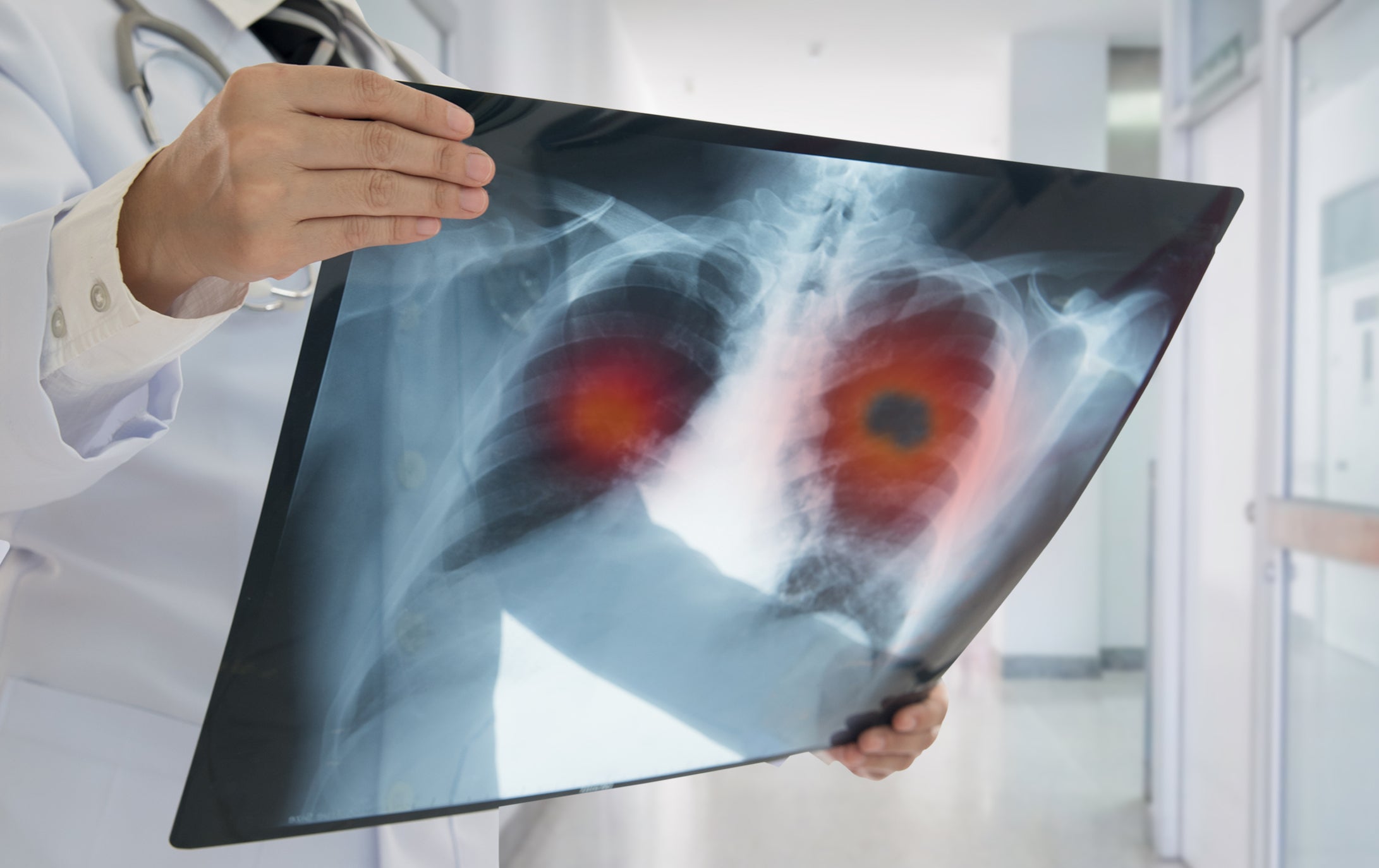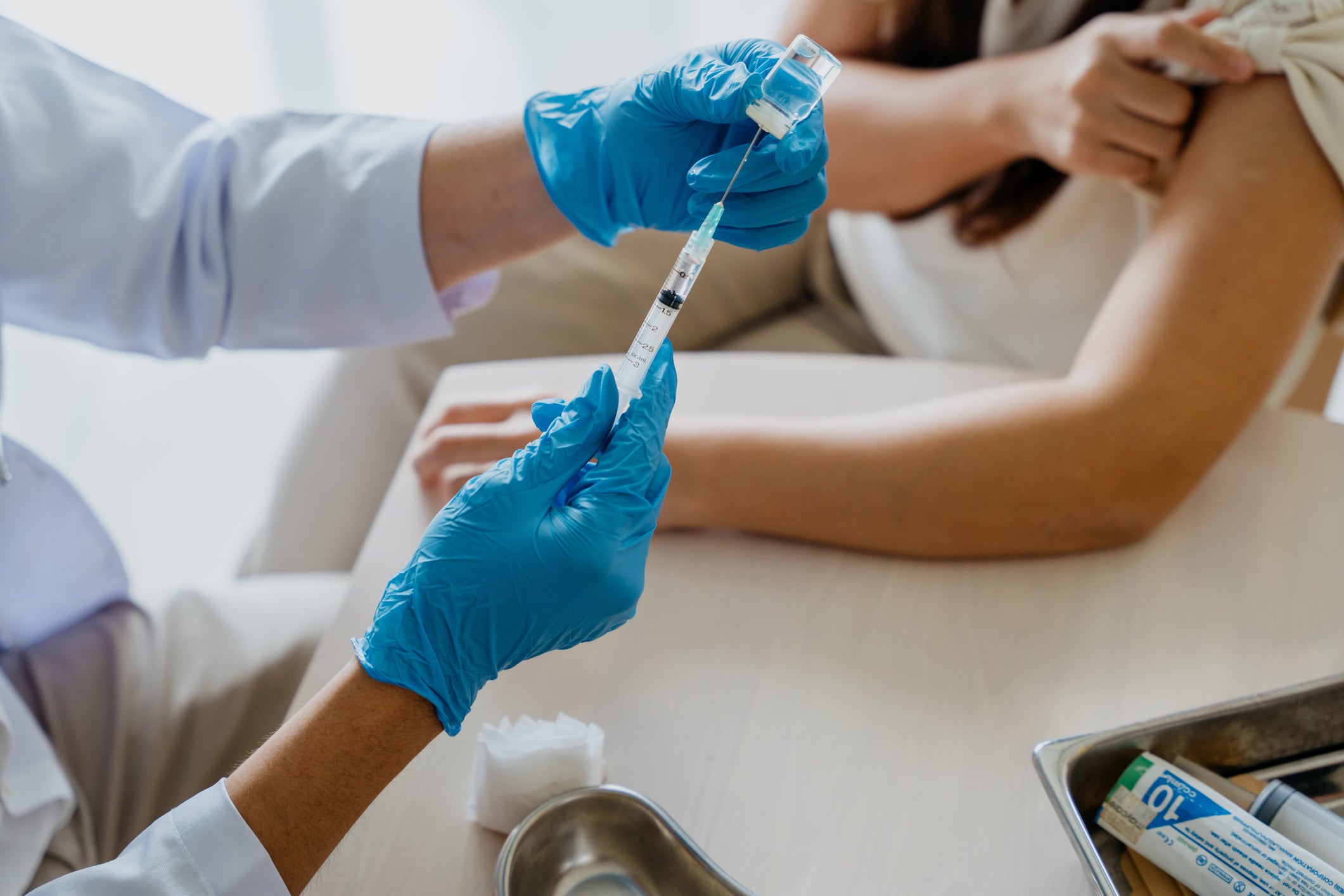
Respiratory illnesses such as Covid and the flu can awaken dormant cancer cells in the body and cause them to spread, scientists have warned.
Researchers found when mice were exposed to Covid or influenza, dormant cancer cells woke up and spread rapidly.
The inflammatory process, which happens when the body's immune system is activated in response to an infection, can awaken disseminated cancer cells (DCCs). These are cells that have broken away from a primary tumour that can spread to distant organs, often lying dormant for extended periods.
Researchers found that a Covid or influenza infection in the mice sparked a massive expansion of metastatic cells in the lungs within days of infection and the appearance of metastatic lesions within two weeks.
Their analysis, published in the journal Nature, revealed the dormant cells were awoken by interleukin-6 (IL-6) - a protein that immune cells release in response to infections or injuries.

The results are “really quite dramatic”, said James DeGregori, a cancer biologist at the University of Colorado School of Medicine in Aurora, and an author of the study.
“Respiratory virus infections didn’t just awaken the cells,” he added. These viruses also caused them to proliferate, or multiply “to enormous numbers”, he said.
“Dormant cancer cells are like the embers left in an abandoned campfire, and respiratory viruses are like a strong wind that reignites the flames”.
However, two population studies also showed the risk of a virus waking up dormant cancer cells is not just a problem in mice.
The study’s authors suggested that respiratory infections in cancer patients in remission are linked to cancer metastasis - where cancer cells spread from the original tumour to other parts of the body.

Researchers used data from patients who were diagnosed with cancer and other diseases prior to the pandemic from the UK Biobank, which holds data from more than 500,000 people.
Researchers from Utrecht University and Imperial College London investigated whether a Covid infection increased the risk of cancer-related mortality among participants with cancer.
They focused on cancer survivors who had been diagnosed at least five years before the pandemic, ensuring they were likely in remission. Among them, 487 individuals tested positive for Covid and these were compared to 4,350 matched controls who tested negative.
After excluding those cancer patients who died from Covid, the researchers found that cancer patients who tested positive for Covid faced an almost doubling of risk of dying from cancer compared to those patients with cancer who had tested negative.
The second population study used data from the US Flatiron Health database and focussed on data from female breast cancer patients seen at 280 US cancer clinics.
They compared the incidence of metastases to the lung among those who did not have Covid (36,216) and patients that tested positive (532).
Participants were followed up just over four years later and researchers found those who came down with Covid were almost 50 per cent more likely to experience metastatic progression to the lungs compared with patients with breast cancer without a diagnosis of Covid.
“Our findings suggest that cancer survivors may be at increased risk of metastatic relapse after common respiratory viral infections,” said Dr Roel Vermeulen of Utrecht University. “It is important to note that our study focused on the period before Covid-19 vaccines were available.”
“Our findings indicate that individuals with a history of cancer may benefit from taking precautions against respiratory viruses, such as vaccination when available, and discussing any concerns with their healthcare providers,” said Dr Julio Aguirre-Ghiso of MECCC’s Cancer Dormancy Institute, a co-leader of the study.
Study reveals the foods which help avoid illness in later life
This rare flu complication is on the rise in otherwise healthy children
US childhood vaccination rates fall again as exemptions set another record
Doctors see surge in hand, foot and mouth cases this summer
Hulk Hogan died from a heart attack. That’s becoming increasingly rare
Now nurses and GPs threaten to strike as NHS braces for winter chaos







